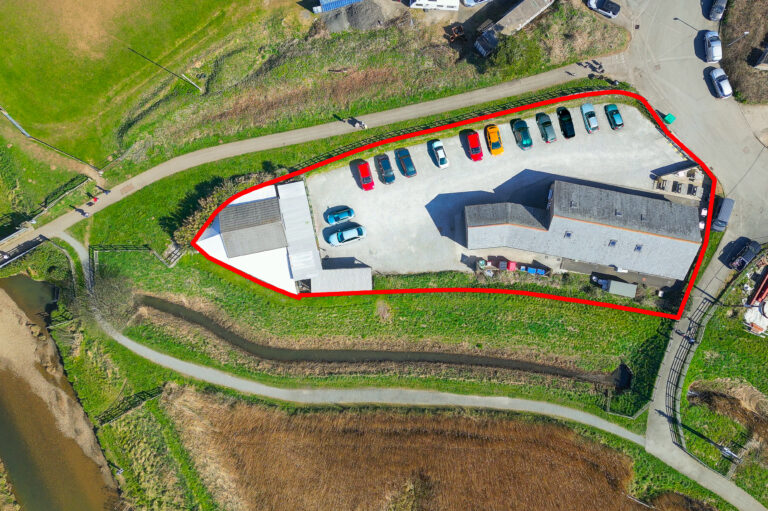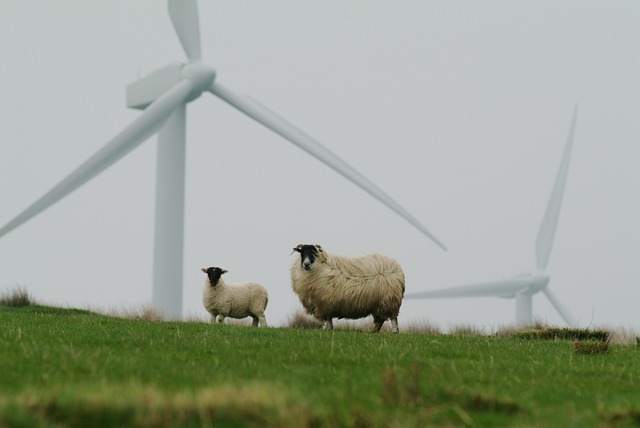South West Property Consultants
With offices in the regional centres of Truro, Plymouth, Exeter and Bristol, our propertry services cover the South West including; Cornwall, Devon, Somerset, Bristol, Gloucestershire, Wiltshire and South Wales.
Home / About Vickery Holman / South West Property Consultants
Commercial Property Services for the South West
From local authorities and high street banks to government departments, professional services firms and private landowners, our diverse range of local, regional and national clients use our expert West Country knowledge to benefit their businesses.
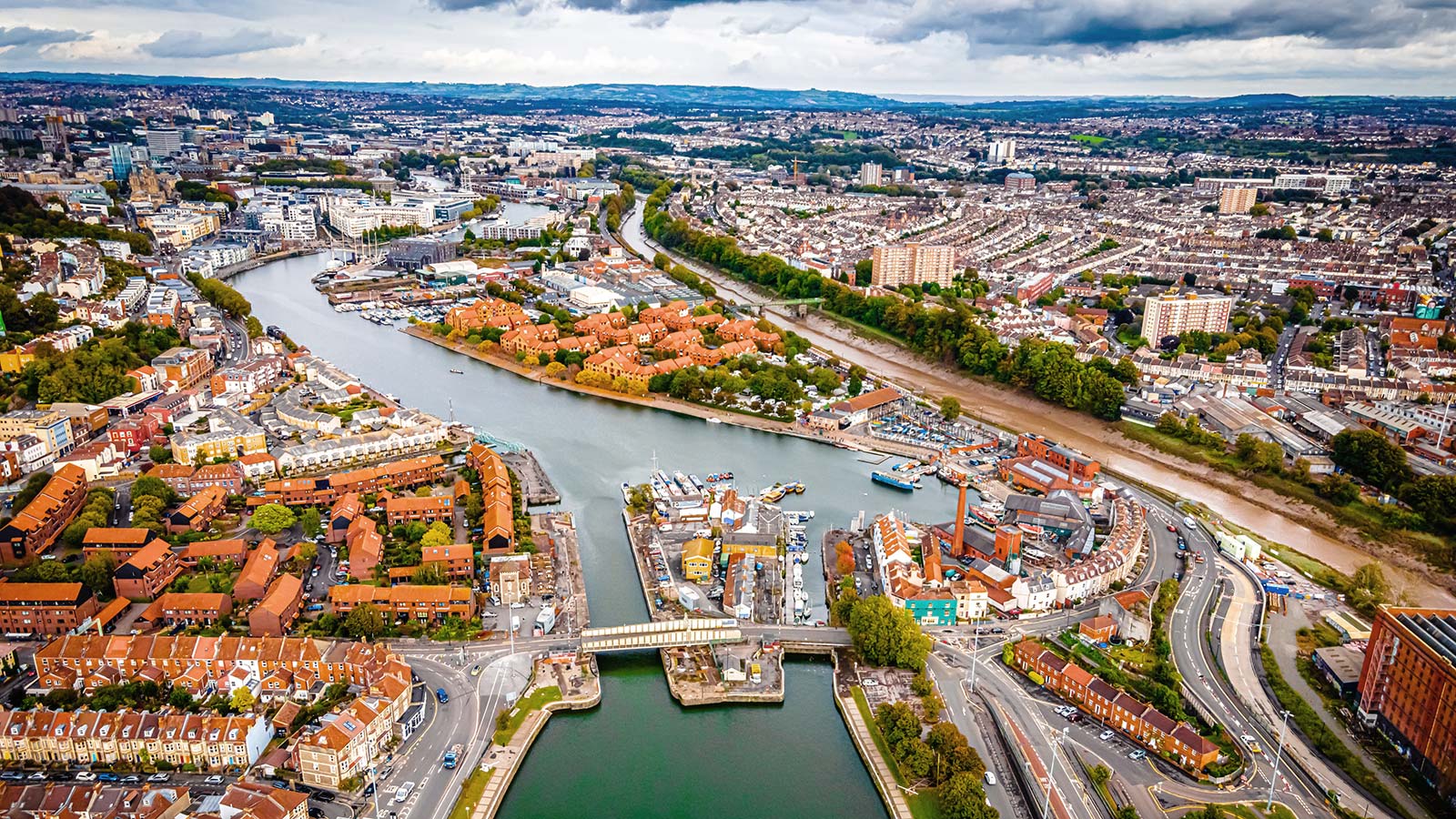
Bristol
Banksy, Blackbeard and (drum and) bass: Bristol is famed for its street art, centuries-old maritime history and influential music scene. Uniquely among large British cities, Bristol has a distinctive energy that is unsurpassed anywhere else. Enveloped in the hills of the South West, its links to the past and its spirited locals have helped to develop its unique identity ever since.
Bristol boasts all the benefits of London (cosmopolitanism, culture, good jobs, great bars and restaurants), but with acres of parkland and a sustainable approach that has earned it European Green Capital status – plus the seaside, surfing and Devon and Cornwall down the road.
Unlike the capital, the city is compact enough to get around on foot, yet big enough to offer year-round festivals, award-winning cycle tracks, gastronomy of every flavour in rejuvenated warehouses and behind secret doorways, stunning cityscapes and awe-inspiring street art.
There is a widespread solidarity in the arts, food and music that promotes quality and individual expression, not profit. From Gloucester Road (the UK’s longest strip of independently owned shops) to the city’s distinctive musical association with heavy bass music, Bristol is a genuine one-off.
Bristol is very well connected. By rail, there are mainlines east and west to London, which take 90 minutes and leave every half hour, and Cardiff (a 40-minute journey, every 20 minutes), north and south to Devon, Cornwall, Birmingham and beyond. The city is on the crossroads of the M4 and M5. It also boasts Bristol Airport and an excellent cycle network.
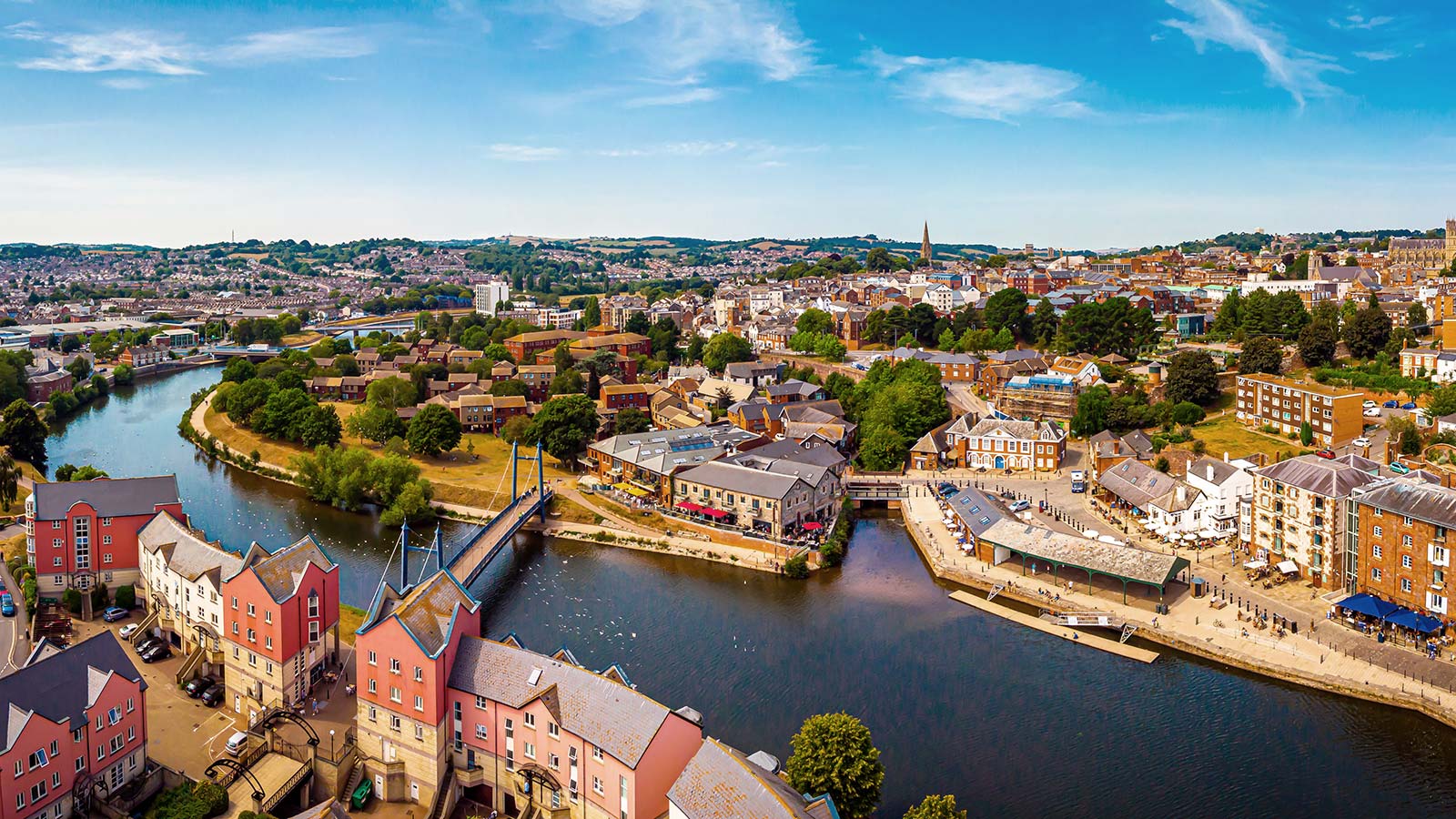
Exeter
Surrounded by wild moors, beaches and hills, outstanding food producers and picturesque old country pubs, and blessed with a cityscape of medieval gothic and Georgian townhouses, it is no surprise that Exeter is Devon and Cornwall’s business and tourism hub. It may be small but this cathedral city makes up for its size with a vibrant mix of shops and restaurants and a long and varied history.
Pre-dating the arrival of the Romans in AD 50, Exeter’s rich history is reflected in its visitor attractions including its unique 14th-century Underground Passages, free Red Coat Guided Tours, magnificent cathedral, imposing Roman wall and beautiful quayside.
Exeter is really capitalising on its distinctive identity. The Exeter Festival of South West Food and Drink and the city’s diverse mix of restaurants means it is renowned as one of the foodie capitals of the South West, while there is a plethora of independent shops and boutiques, cafes and bars on offer in the West Quarter or on the cobbled Gandy Street. The old canal basin is a delight of converted warehouses, shops and eateries, too.
The city’s independent art and culture scene is serviced by the Bike Shed Theatre, Exeter Phoenix, the Northcott Theatre and the Royal Albert Memorial Museum. It is also firmly on the map as a destination for top sporting events and music. Powderham Castle play host to a packed calendar of events and festivals throughout the year.
It is well connected, too: there are trains to Taunton (28 minutes), Exmouth (30 minutes), Bristol, Plymouth and Yeovil (all one hour). It takes half an hour to drive to the sea at Exmouth or to the wilds of Dartmoor, 45 minutes to Taunton and 90 minutes to Bristol. You can fly from Exeter Airport to London, Manchester, Newcastle, Edinburgh, Glasgow and abroad.
Bristol boasts all the benefits of London (cosmopolitanism, culture, good jobs, great bars and restaurants), but with acres of parkland and a sustainable approach that has earned it European Green Capital status – plus the seaside, surfing and Devon and Cornwall down the road.
Unlike the capital, the city is compact enough to get around on foot, yet big enough to offer year-round festivals, award-winning cycle tracks, gastronomy of every flavour in rejuvenated warehouses and behind secret doorways, stunning cityscapes and awe-inspiring street art.
There is a widespread solidarity in the arts, food and music that promotes quality and individual expression, not profit. From Gloucester Road (the UK’s longest strip of independently owned shops) to the city’s distinctive musical association with heavy bass music, Bristol is a genuine one-off.
Bristol is very well connected. By rail, there are mainlines east and west to London, which take 90 minutes and leave every half hour, and Cardiff (a 40-minute journey, every 20 minutes), north and south to Devon, Cornwall, Birmingham and beyond. The city is on the crossroads of the M4 and M5. It also boasts Bristol Airport and an excellent cycle network.
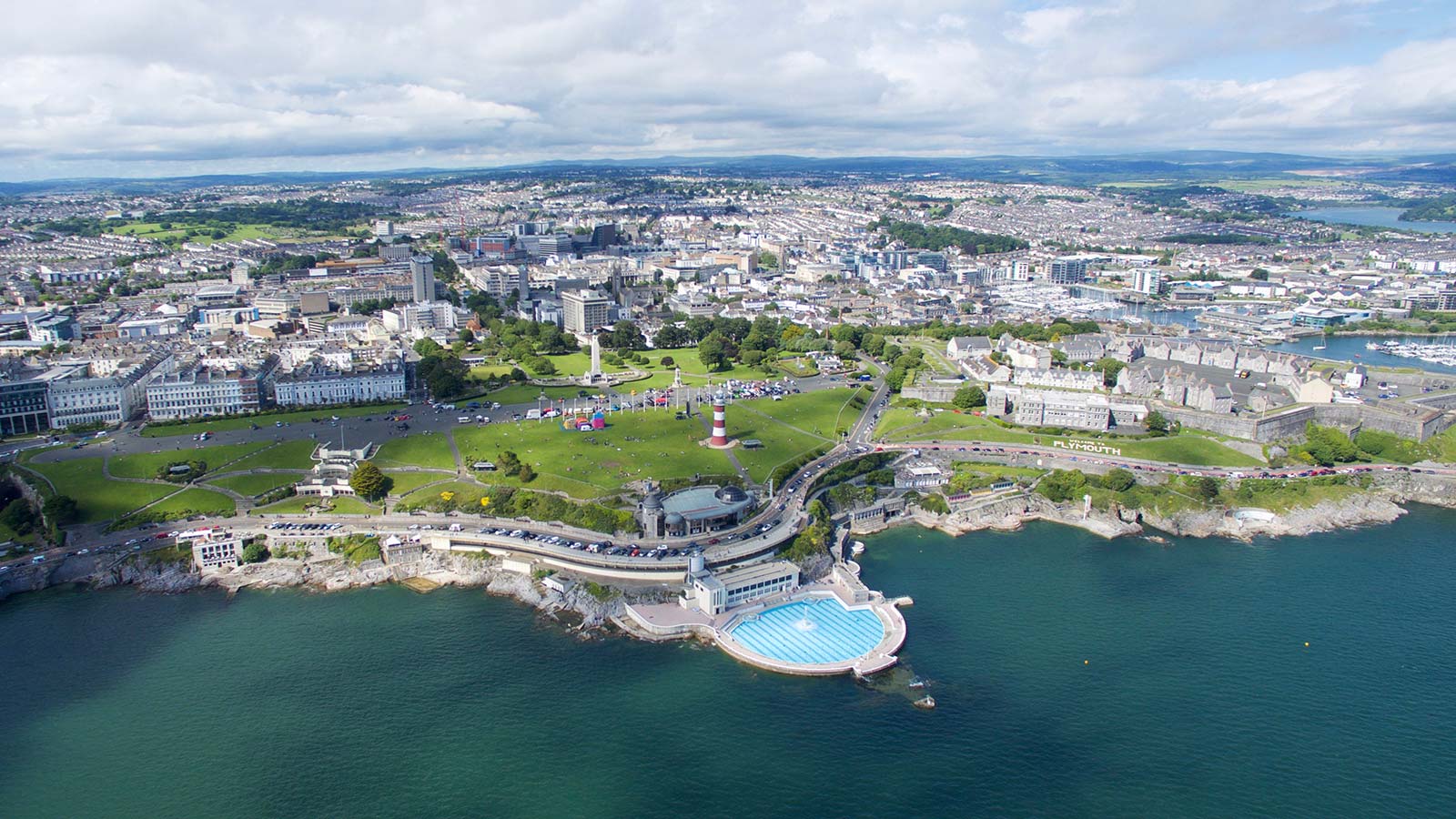
Plymouth
Plymouth is a historical and cultural gem nestled on a stunning part of Devon’s south coast. Heavily bombed during the Blitz, its rebuilt postwar city centre is not a work of utter beauty, but it is overshadowed by Plymouth’s attributes, not least its stunning geography beside the sea, which includes the art deco Tinside Lido dramatically situated beneath craggy cliffs. Dartmoor National Park’s magnificent rolling hills are half an hour’s drive away, Cornwall is moments away via the Tamar Bridge or Torpoint Ferry and a wealth of sailing, surfing and other water activities can be found on the nearby Devon and Cornwall southern coastlines.
Plymouth’s naval heritage goes back to 700BC, when a site at Mountbatten was the premier port in England. However, it was in 1588 that Sir Francis Drake put the port on the map, when, according to legend, Drake played bowls on Plymouth Hoe while contemplating the threatened Spanish invasion. Now, the port harbours nuclear-powered submarines and is at the heart of the nation’s maritime defences. Royal William Yard, the old naval victualling yard, has been developed into a stunning waterfront of restaurants and bars and has an array of events such as the monthly Good Food Market and Open Air Cinema.
The city is also a burgeoning entrepreneurial and tech hub. Its stunning scenery, quality of life, coast and moorland is a major draw for creative thinkers eager to leave the overheated South East.
As a result, Plymouth’s arts and culture scene is abuzz. The Box, a ground-breaking new visitor attraction, is set to open in 2020. It will be a museum for the 21st century with extraordinary gallery displays, high-profile artists and art exhibitions, as well as exciting events and performances that take visitors on a journey from pre-history to the present and beyond.
The waterfront city is also well connected, with trains that take an hour and depart every half-hour to Exeter; and take under four hours to London. Devonport station serves Stoke for local services, and the branch line to Gunnislake provides access to the north of the city. It is an hour’s drive to Exeter or St Austell.
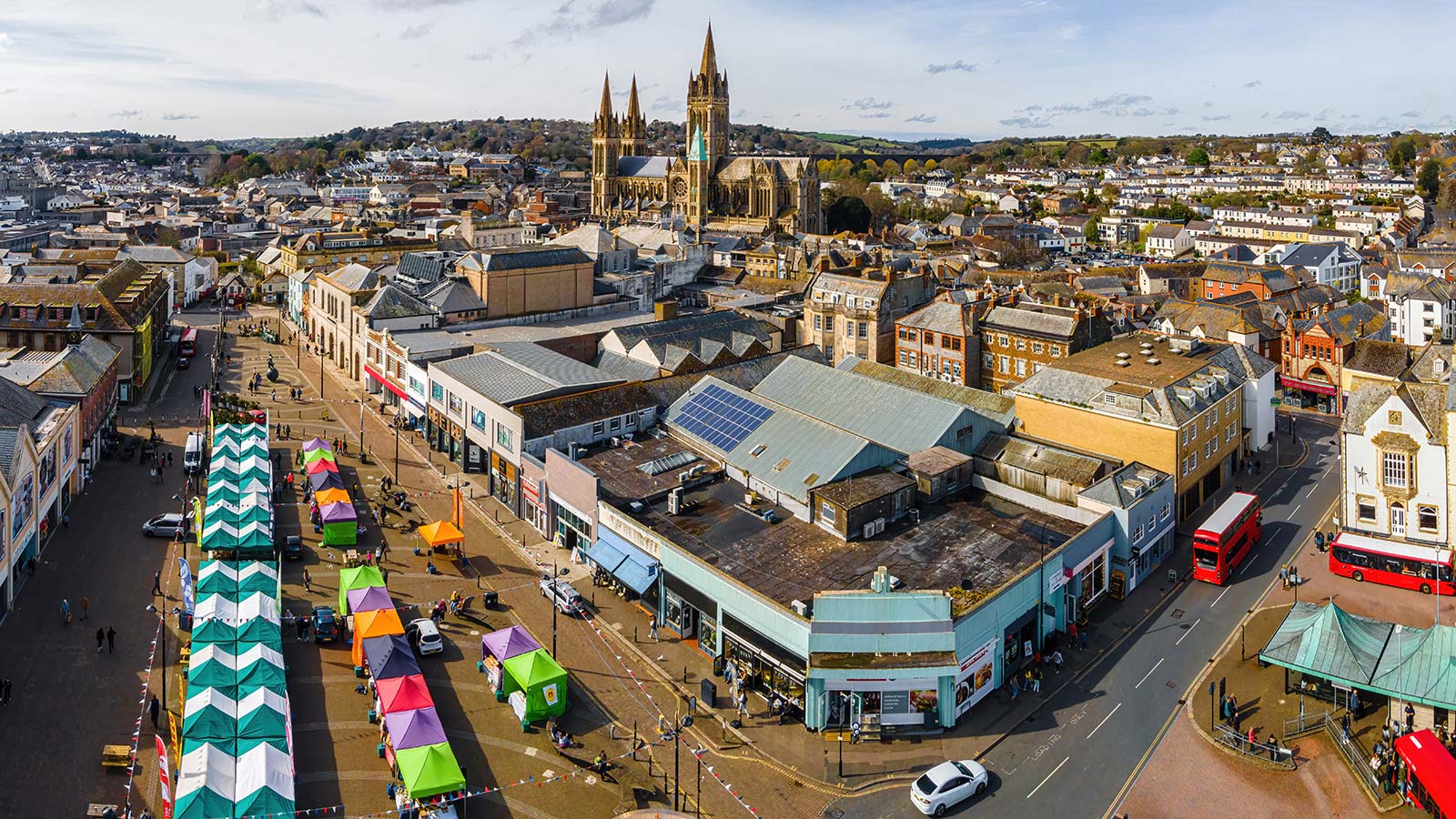
Truro
Truro, the UK’s most southerly city, is a vibrant centre of shopping, culture and impressive architecture. Positioned almost in the middle of Cornwall, the city has been the county’s administrative centre since the main courts were moved there from Bodmin. It is also the ecclesiastical and cultural centre of the county. The city’s heritage as a market town and port dates back more than 800 years, booming during the tin mining era.
Truro’s most striking feature is the cathedral, with its green spire and gothic appearance. Built at the turn of the century, it dominates the Truro skyline with its 250 foot-high towers. In its shadow, a warren of compact streets are home to an impressive array of independent traders. From boutiques to bookshops and designer interiors to delicatessens, Truro is Cornwall’s main shopping town. Lemon Quay appears to host a different festival every day, such as the Great Cornish Food Festival, and there is a farmers’ market twice a week. The café culture is impressive too, with hip coffee houses, artisan ice cream parlours and cocktail bars dotted across the centre.
It has excellent transport links: trains take five hours, as frequently as every one or two hours, to London Paddington. The A30 connects to the M5 and Newquay Airport is a 40-minute drive.




